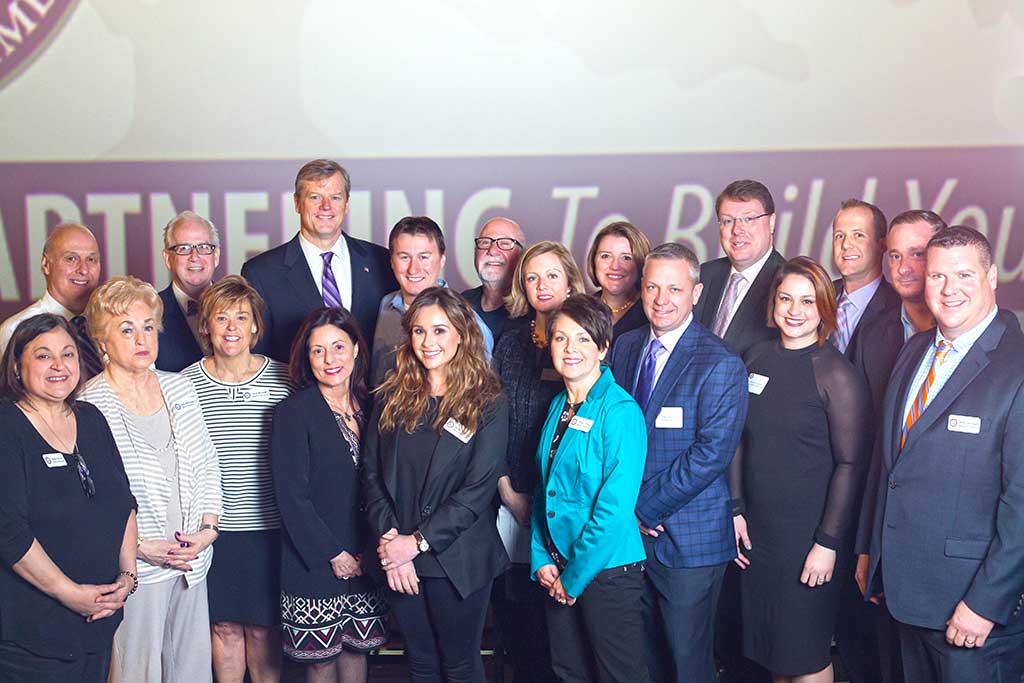Published in the April 6, 2017 edition

The Reading-North Reading Chamber of Commerce welcomed Governor Charlie Baker as their special guest at last week’s annual meeting. (Courtesy Photo/Peg Raciti Photography)
By BILL LAFORME
READING – Governor Charlie Baker focused on the relationship between state and local government during his remarks at the Reading-North Reading Chamber of Commerce annual meeting last Thursday morning.
Baker, a Republican, was sworn into office in January of 2015. He also served as secretary of health and human services and secretary of administration and finance under Governor Bill Weld in the 1990s. As Governor, Baker said that his major objective has been to rebuild the relationship between Beacon Hill and the local governments of Massachusetts, noting that both he and Lieutenant Governor Karen Polito have served as selectmen in the past. Citing his own experience as a local official, Baker cited a past climate where the state often “told (towns) what to do, gave them no money, and told them to suck it up.”
“We have to build 351 communities where people feel the possibilities and opportunities for them and their neighbors are positive and headed in the right direction,” said Baker.
Baker also recalled how his first executive order had resulted in the creation of the Community Compact program, which more than two-thirds of Massachusetts towns have now reportedly participated in. Baker hailed the program as a way for communities to share knowledge and experience in particular areas, while the state has a better opportunity to learn which issues are most affecting local governments. Baker added that the Mass. Municipal Association had praised the executive order as the most importance piece of municipal governance legislation in years, while Baker compared it more to “weed-whacking” aimed at freeing up local governments to better function.
Baker cited last year’s economic development legislation as an effort to create more capital at the state level to help invest more in communities and to focus on goals like cleaning up downtowns and re-developing abandoned brown spaces.
Giving a likely preview of some future re-election speeches, Baker also cited reforms at the Department of Children and Families during his watch which he said have resulted in 190 net new social workers to help ease the agency’s case load, which involves a total of about 50,000 Massachusetts families. He called the agency’s new commissioner “spectacular” and added that all social workers in the state must now be licensed and they have new clinical teams to support them. Another success Baker hailed with DCF was largely ending the state’s policy of housing homeless families in motels – with only about 67 families in that program, down from about 1,500 at its peak. The goal is to get that number down to zero, added Baker.
On health care, Baker said his administration had worked to improve “a very broken health care market,” with two successful open enrollment periods that had seen a significant increase in the number of insured in the state.
Baker also focused on bipartisanship, noting that after he won the election he had met with a number of local officials who backed his opponent to set up good working relationships with them. “We want to work with 100 percent of the people,” said Baker, adding that the first two hires of his own administration happen to have been Democrats. “We’re going to pick the best person on the field, period,” he said. That approach, he added, has also helped the state become a leader in low unemployment and quality of life. “It’s not going to be about keeping scores,” said Baker. “It’s going to be about solving problems.”




